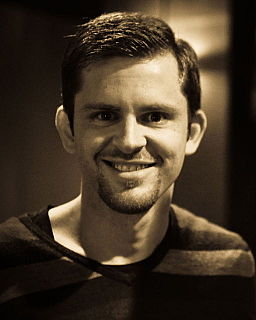A Quote by C. S. Lewis
No emotion is, in itself, a judgement; in that sense all emotions and sentiments are alogical. but they can be reasonable or unreasonable as they conform to Reason or fail to conform. The heart never takes the place of the head: but it can, and should, obey it.
Related Quotes
Knowledge of those unalterable Relations which Providence has ordained that every thing should bear to every other...To these we should conform in good Earnest; and not think to force Nature, and the whole Order of her System, by a Compliance with our Pride, and Folly, to conform to our artificial Regulations.
A great emotion is too selfish ; it takes into itself all the blood of the spirit, and the congestion leaves the hands too cold to write. Three sorts of emotion produce great poetry - strong but quick emotions, seized upon for art as soon as they have passed, but not before they have passed ; strong and deep emotions in their remembrance along time after ; and false emotions, that is to say, emotions felt in the intellect. Not insincerity, but a translated sincerity, is the basis of all art.
For my part, I think we need more emotion, not less. But I think, too, that we need to educate people in how to feel. Emotionalism is not the same as emotion. We cannot cut out emotion - in the economy of the human body, it is the limbic, not the neural, highway that takes precedence. We are not robots...but we act as though all our problems would be solved if only we had no emotions to cloud our judgement.
Dancing is, in itself, a very trifling and silly thing: but it is one of those established follies to which people of sense are sometimes obliged to conform; and then they should be able to do it well. And though I would not have you a dancer, yet, when you do dance, I would have you dance well, as I would have you do everything you do well.
Some people say, "Sometimes I have violent thoughts, what can I do?" So I say, "Well, have them!" Cos we should not try to control ourselves. It's very bad to control ourselves in this sense. If you have any emotion at all, if its a bad emotion or good emotion, think about it, you should just understand that you have those emotions. And it's good because we are people and we have all these emotions. And the result of that is you would become more and more peaceful. If you don't let those emotions be inside of you then you become extremely violent.




































